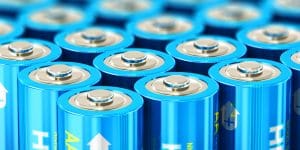Cummins plans to make a fresh investment in India to manufacture automotive battery packs, a top executive said, as the world leader in conventional engines for commercial vehicles gears up for emerging opportunities in electric mobility.

“We will soon start manufacturing batteries in India and initially we will continue to focus on the commercial vehicle segment,” Julie Furber, executive director of electrification business development at the American company, told ETAuto.
“While we are already talking to partners here to take this forward, we will soon be making investments towards new technology in India.”
Cummins is already building capabilities in the battery segment. It recently completed acquisition of British chemicals group Johnson Matthey’s automotive battery systems business, which specialises in making high-voltage batteries for electric and hybrid vehicles.
Earlier in October, it acquired another battery maker, Brammo, which is known for designing and developing low-voltage battery packs.
“We are also ready with hybrid engines to service the Indian market. We have recently developed a range extender which can take buses and trucks to over 150 miles (241 kms) in one charge without compromising much on space and weight,” Furber said.
Cummins has invested over $1 billion in India in the past five years, including in a Rs 1,500-crore global technical centre in Pune where it has hired about 2,000 engineers.
“The global technical centre will become operational this month and the centre will not only serve the Indian market but will also provide strong support to the markets overseas,” Furber said.
Last week, the American engine manufacturer reported a nearly 17% increase in its 2017 revenue at more than $20 billion. Furber said increased demand for heavy commercial vehicles in India, China and South America was one of the key drivers of the growth.
Cummins has been present in India for more than six decades. Tata Motors has been one of its key customers here. Recently, the company announced plans to invest in engine meeting the Bharat Stage VI emission standards that will come into force in India in 2020.
While Cummins expects the conventional internal combustion engine to remain relevant for the foreseeable future, Furber said the company was also committed to developing green technologies.
“The world is talking about reduction of CO2 which we are aware of and we will certainly provide all possible solution, which includes hybrid, electrification and other alternate fuel powertrain,” she said.


























